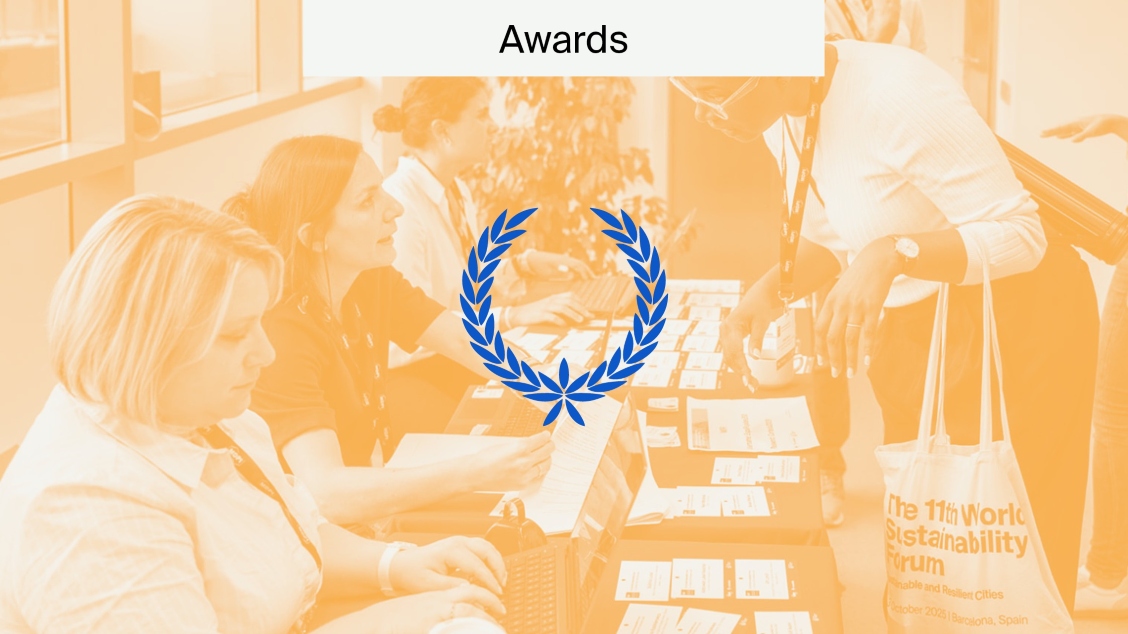
Challenges and Opportunities: Early Career Researchers
Early career researchers (ECRs) are presented with many challenges and opportunities, but these have changed significantly in recent decades. Generally speaking, there has been a huge improvement in the culture of academia. Universities have put much greater emphasis on inclusivity and diversity, and generally advocate more mental health support.
However, other problems have begun to surface. Tenured positions (permanent posts at universities) used to be much more common than they are now. Hence, older researchers have benefitted from job security and a stable income, with a clearly defined structure for them to progress. Modern-day ECRs are burdened with a significant amount of stress, not knowing if their positions will be renewed at the end of every academic year.
Additionally, funding is much harder to come by than it once was. In the United States, funding success rates have decreased significantly over the last two to three decades, from around 33% to 20%. This means that researchers are spending much more time trying to finance their work. To ensure that their work will be funded and published, ECRs are more frequently covering topics that they consider “safe”. This means research that shows tangible results in a very narrow field of study, without addressing big questions.
However, though ECRs today face many new challenges, they are also presented with many new opportunities. The Internet has broken down barriers between academics, allowing ECRs to network online and form strong working relationships. Additionally, this allows them to share their research globally, cultivating a reputation for themselves in their fields.
Here, we look at five challenges and opportunities that modern-day early career researchers face.
Challenges
1. Increased competition
Research shows that, across the globe, the number of people entering higher education (HE) is rapidly increasing, presenting both challenges and opportunities. In 2016, 216 million people entered HE. This is projected to increase to around 594 million students by 2040. PhD and postdoctoral positions are therefore becoming increasingly scarce.
This can lead to a lot of anxiety for ECRs. With the growing pool of applicants, it is becoming increasingly difficult to be hired into research positions. This is exacerbated when one’s peers get onto their desired projects; it can be difficult to not compare oneself to them.
Whilst a lot of this is out of your control, it can be useful to develop your transferable skills, such as presentation, writing, and verbal communication skills, to improve your confidence and employability. Additionally, ask for structured feedback. If there’s a weakness in your research or application, it is crucial (albeit anxiety-inducing) to know what you need to work on to improve your chances of success.
2. Limited funding
Funding is perhaps the biggest cause of stress for ECRs. The process of applying for funding is not the same for everyone; certain disciplines will be much better financed than others. Often, there isn’t a well-defined process for finance applications, so a lot of time will be spent finding bodies or organizations that may potentially fund you. Additionally, you may have to change your research goals to better match the criteria of said organizations.
The best way to secure funding is to look further afield for research councils, organizations, academic societies, nonprofits, etc., that align with your interests to increase the chances your work getting financed.
Additionally, you can find funded lab groups to join. You may not be leading the research, but it’s a good step in your chosen field and relieves you from funding pressures.
3. Difficulties building research profile
Building a solid reputation as a researcher is a top priority for ECRs.
The way to achieve this is by getting as many papers published as possible. The phrase “publish or perish” is one that most academics are familiar with. With the (quite rightly) stringent peer review process, papers are frequently rejected (with around 80% rejection rates in top journals) and, even if accepted, publication times are usually long. This, of course, significantly varies depending on the publisher and journal.
Whilst many of these problems are unavoidable, there are changes you can make.
Consider presenting your work at conferences. This will allow you to demonstrate the value and impact of your research. Also, it will help you build your network and reputation. It can also be beneficial to share your work online: writing blogs or sharing your work on social media can help you make a name for yourself in your field of expertise.
4. Lack of motivation
To make it through a PhD, you need perseverance and drive.
ECRs are generally motivated people with a passion for their field of research. However, the daily trials and tribulations of academic life can sap you of your energy. As you progress, teaching takes precedence.
Much of the time that ECRs would otherwise spend in the lab is being spent marking papers, instructing students, and often acting as pastoral support. Whilst much of this is to be expected, it can leave ECRs feeling quite disconnected from their respective fields.
Additionally, it’s easy to persevere when you’re getting positive results. When you’re not, it is much harder to keep going. It can be beneficial to remind yourself of why you began your research in the first place. This can also put your other less immediately gratifying tasks and responsibilities into perspective.
5. Skewed work-life balance
Working in academia requires you to work long, antisocial hours – often well over 40 hours a week. PhD students and postdocs frequently find themselves working early mornings and late evenings, as well as weekends. And when there’s a time-sensitive issue that needs addressing, this can mean working through the night. ECRs frequently do much more work per week than the hours they are paid for.
As many ECRs and students are able to maintain their output due to their passion and aptitude for their chosen fields, overworking has been normalized in academia. However, long term, this can lead to burnout and mental health difficulties.
Therefore, striking the right balance between one’s work and personal life is crucial. Making time for friends, family, and physical exercise is necessary to avoid burnout. Focus on hobbies outside of your discipline to allow you to recover from the pressure and strain of academic life.
Opportunities
1. Web 2.0
The term Web 2.0 is used to describe websites that promote user-generated content, allowing users to collaborate and communicate with one another.
Around 72% of researchers say they don’t use social media to promote their research. Sharing your results in blog posts and on social media is a great way to generate interest in your work. The responsive and collaborative nature of these kinds of websites means that they can be used as sounding boards – others may help you identify any problems that weren’t addressed in your research, giving you ideas for future directions.
Additionally, it also makes it easy to keep up to date with research in your field, or even to understand relevant concepts outside of your discipline.
2. Open access
In addition to sharing your work on social media, publishing in open access (OA) journals is a good way to increase the visibility of your work. While this has its own set of challenges and opportunities, without paywall restrictions, your work will have a global audience. This could help boost the number of citations that your research receives, as well as your h-index.
With a wider audience, your work could be used by other bodies or companies to inform their decision making. For example, non-governmental agencies, practitioners, etc., could use your work to implement policies or approach certain problems, demonstrating the impact of your research in the real world.
In some instances, it can be considered more ethical. For example, if your work is publicly funded, it allows those who often don’t see the results of their contributions access to your research.
3. Preprints
Preprints are scholarly publications that have not yet been through peer review and publication in a journal. In other words, they are a preliminary draft of an author’s work.
This allows ECRs to upload their work and receive feedback from the research community. Submitting a preprint allows you to refine and adapt your line of inquiry, correct any mistakes, and see the general response from your fellow researchers. This increases the chances of your paper passing peer review. Additionally, it gets a lot of eyes on your work early, before it is officially published, meaning that you will potentially have a bigger audience for the finished product.
4. Special Issues
Special Issues (SIs) are collections of papers on a particular theme or topic, offering a broad perspective on a niche area of research.
These can greatly benefit ECRs in several ways. Generally, publication times are faster than those for standard papers, and articles in SIs are much more frequently cited. Additionally, they tend to reach a broader audience. Due to the wide coverage of topics, it is a good way to expose people interested in other areas of your field to the specifics of your research.
Also, publishing in this way, with an experienced guest editor and with a group of your peers, will allow you to gain deeper insights in your field of study. Tackling the same issues from various perspectives will help you grow and learn as a researcher.
5. ECR-specific schemes
To help navigate the many challenges and opportunities there are many grants offered exclusively to ECRs, specific to what stage you’re at in your career. For example, the UK offers programs such as Doctoral Training Partnerships and the Postdoctoral Fellowship Scheme (and more) to help fund ECRs.
Being early in your research career presents unique challenges and opportunities. Let us take some of the stress away. We’ve got so many articles on the MDPI Blog, with excellent advice about how to advance in your field. Take a look at our overview article on early career researchers to get started.











I am interested To Do Try Write articles and Short story however
Thanks for reading and for your interest, Shankar! This article covers challenges and opportunities for ECRs, but you can find out more about academic writing in our article on ways to improve your research paper.
Great insightful information for ECRs. I have taken a great deal from the article. Thank you prof
Hi Muhammad, very glad you’ve found this helpful. If you liked this article, you might be interested in our early career researcher guide: https://blog.mdpi.com/2022/11/16/early-career-researcher-guide/
I would like to get information about Doctoral Training Partnerships and the Postdoctoral Fellowship Scheme. Could researchers of Azerbaijan State University of Economics UNEC apply this project?
Hi Shefa, thanks for getting in touch.
The examples given are specific to the UK. You can get in touch with your institution to find out about similar national government schemes that you can apply to.